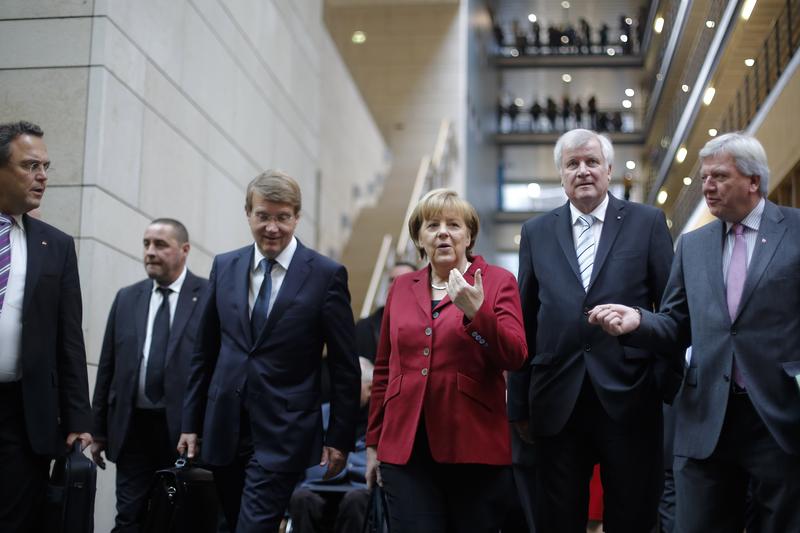
Angela Merkel's monumental victory on election night wasn't quite big enough to allow her Christian Democratic Union (CDU) party to govern on its own. The party won 311 seats, just five seats shy of an outright majority. As a result, Ms. Merkel must negotiate with other parties to form a coalition government.
In 2005, the last time Merkel's CDU was forced into an ideologically awkward "grand coalition" with the center-left Social Democratic Party (SPD), a government was formed after six weeks of negotiations. This time, the CDU has already conducted two rounds of talks with the SPD, followed by failed talks with the center-left Green Party. Now, the SPD is back for Round 3.
But they come bearing a list of demands.
According to Reuters, included in the SPD's list of ten "non-negotiable" demands is "a minimum wage of 8.50 euros per hour, equal pay for men and women, greater investment in infrastructure and education, and a common strategy to boost euro zone growth and employment." They also want "equal pensions for seniors in the former West and East Germany, the ability to have dual citizenship, and measures to make it easier to combine work with family life."
Of all these demands, implementing a national minimum wage will be the trickiest. Merkel is in favor of something resembling the current system, in which sector-specific minimum wages are negotiated between employers and unions. Additionally, German economists are opposed, warning that a national minimum wage of â?¬8.50 will cost jobs, particularly in former East Germany.
The SPD claims that it is not afraid of calling for new elections if they are unable to form a government with the CDU.
However, given Ms. Merkel's personal popularity and the German people's desire to see a CDU-SPD grand coalition, that may not be a very smart gamble. One could easily see Merkel winning an outright majority if Germans were forced to vote again.
(AP Photo)



